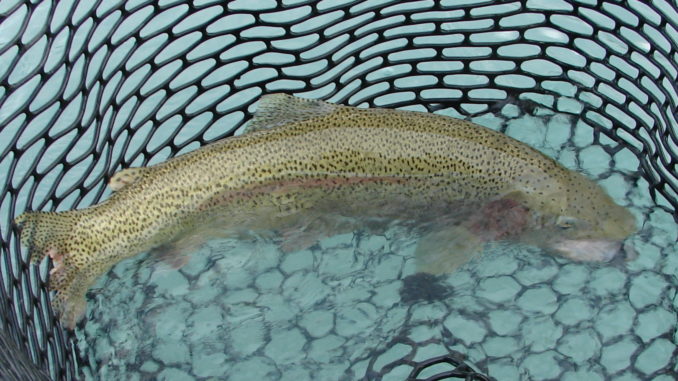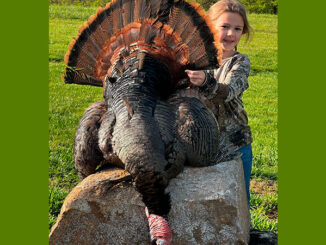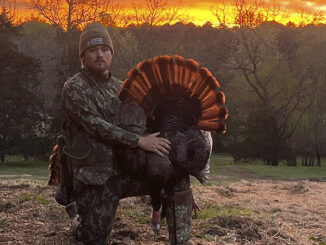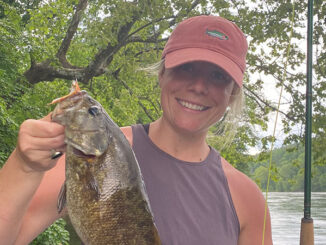
RALEIGH, N.C. – Anglers fishing in mountain waters designated as “delayed-harvest” can keep the trout they catch beginning at 6 a.m. on June 7, when regulations change to “hatchery supported.”
Under hatchery-supported regulations, in effect through Sept. 30, anglers can keep a maximum of seven trout per day, with no bait restrictions or minimum size limits.
Of the 1,120 miles of state trout waters designated as hatchery-supported, 56 miles and one lake are further classified as delayed harvest. From October to the first Saturday in June, delayed-harvest regulations allow only catch-and-release fishing, and anglers can fish only with artificial lures with one hook. Delayed-harvest trout waters are posted with diamond-shaped, black-and-white signs.
The N.C. Wildlife Resources Commission began its delayed-harvest program in 1992, stocking catchable-sized trout in four streams opened for spring fishing only. Due to strong public interest and support, the program was expanded in 1996 to incorporate both spring and fall fishing.
Today, the program includes 18 bodies of water. Many of these waters are located on land that is privately owned and can be removed from the program at any time at the discretion of the landowner.
While many landowners allow access to trout waters that flow through their properties, others are feeling encroached upon due to the irresponsible actions of a few anglers, said Kyle Briggs, who coordinates hatchery production for the Commission.
“We think the delayed-harvest program provides terrific fishing opportunities for the general public, but it has become such a big program that we can only do it in cooperation with private landowners,” Briggs said. “And landowners will only continue to grant access to waters on their properties as long as anglers are respectful of their privacy and their properties.”
To help prevent the closure of waters in the delayed-harvest program, anglers should:
* Dispose of trash and litter properly
* Park only in designated areas
* Close gates
* Avoid blocking driveways or side roads
Hunting, camping, picnicking and activities other than fishing typically are not allowed unless the landowner grants permission.
For a list of delayed-harvest waters organized by county, consult the Commission’s regulations digest or view the fishing regulations online, www.ncwildlife.org.
For more information on fishing in North Carolina’s public, inland waters, call the agency’s Division of Inland Fisheries, (919) 707-0220 or visit the Web site.




Be the first to comment